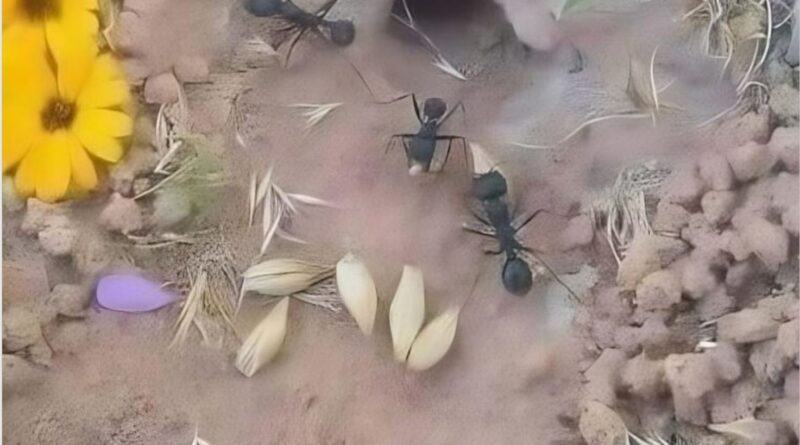Ants’ Seed Storage Secret: A Mystery Solved?
Ants, often overlooked as tiny creatures, have long captivated scientists with their intricate social structures and remarkable abilities. One of their most fascinating behaviors is their practice of collecting and storing seeds for winter. By breaking these seeds in half, ants prevent premature germination, ensuring a reliable food source during harsh conditions.
A Surprising Twist
However, recent research has unearthed a surprising twist to this well-established phenomenon. While most seeds lose their germination potential when broken in half, coriander seeds defy this rule. Despite being split in two, they can still sprout under the right conditions.

Ants’ Ingenious Solution
To the astonishment of scientists, ants have discovered a workaround for this peculiarity. Instead of breaking coriander seeds in half, they meticulously divide them into four parts before storing them. This seemingly insignificant act has a profound impact on the seeds’ ability to germinate. Laboratory experiments have confirmed that while a coriander seed split in half can still sprout, one divided into four parts loses its germination capacity.
A Mystery Unravelled?

The question that remains is how these tiny creatures acquired this knowledge. Do ants possess some innate understanding of coriander seeds and their unique properties? Or is this a result of trial and error, with generations of ants learning through experience that dividing coriander seeds into four parts is the most effective way to preserve them?
The Importance of Natural Wisdom
Regardless of the underlying explanation, this discovery highlights the vast knowledge that exists within the natural world. Ants, with their complex social structures and remarkable behaviors, offer valuable insights into ecological interactions and survival strategies. By studying these creatures, we can gain a deeper appreciation for the diversity and complexity of life on Earth.

The mystery of ants’ seed storage behavior continues to unfold, with the discovery of their unique approach to preserving coriander seeds. This fascinating finding underscores the importance of scientific exploration and the potential for groundbreaking discoveries in even the most seemingly ordinary corners of the natural world. As we continue to explore the intricate relationships between organisms, we may uncover even more remarkable examples of nature’s ingenuity.
